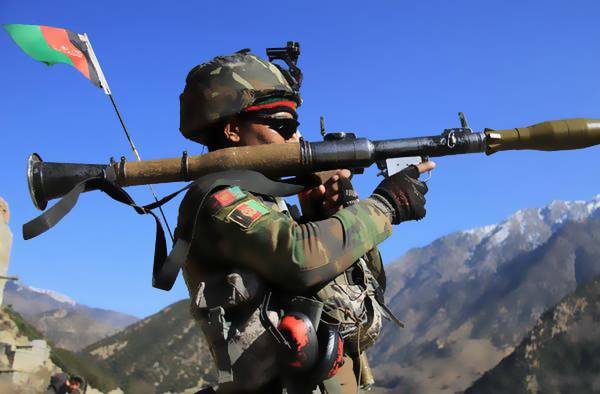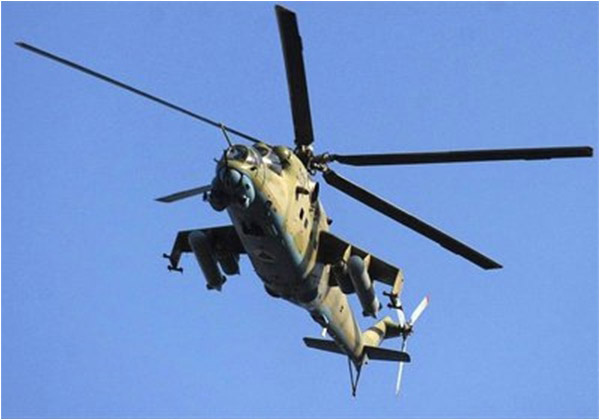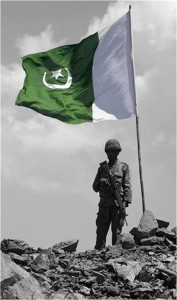
In an early morning raid on September 28, Taliban militants captured the northern Afghan city of Kunduz, taking hold of key government buildings in the town and freeing hundreds of men from its central prison. This is their biggest victory since 2001.
With mistrust with Afghanistan all time high and initiatives for improving the relationship – which has almost perpetually been on downward spiral – having fallen apart, it makes sense to expect that a big chill in the relationship is imminent, unless something major prevents it.
Even the most ardent of the optimists are not ready to predict any breakthroughs.
A steep decline in ties between Islamabad and Kabul was evident since the reconciliation process broke down in July due to Afghan intelligence’s leak about the death of Taliban chief Mullah Omar, and the subsequent upsurge in violence in Afghanistan.
Statements following the terrorist attack on the PAF Camp in Badaber made it crystal clear that the relationship had already become dysfunctional.
The aftermath of the Badaber attack stood in sharp contrast to the Army Public School tragedy, when Army Chief Gen Raheel Sharif dashed to Kabul armed with proofs of involvement of Afghanistan based militant groups, and was instantly obliged by a limited action against the terrorist sanctuaries in Kunar. The relationship, in those days, was at a historic high.

But this time, although the Pakistani civil and military leadership is confident – based on the intercepts made by the intelligence agencies and other available evidence – that the attack had been planned and directed by a group linked to Tehrik-e-Taliban Pakistan (TTP) based in Afghanistan, Islamabad has not been able to share the proofs with Kabul.
A national security meeting convened to discuss the matter ended with a decision, in principle, to convey those proofs to Afghan authorities, but without deciding when and where that will happen.
As a result, most of the messaging is now being done through the media.
 The Afghan reaction to the attack looked cold. Afghan President Ashraf Ghani’s condolence telephone call to Prime Minister Nawaz Sharif came late – precisely four days after the tragic event happened. But importantly, the statement issued by the Afghan presidency a day after the attack – rejecting allegations about Afghan involvement – took a veiled shot at Pakistan’s counter-terrorism operations instead of out-rightly denouncing the attack. It asked Islamabad to fight “all terrorist groups without discrimination so that peace and stability are ensured in Afghanistan, Pakistan and the region.”
The Afghan reaction to the attack looked cold. Afghan President Ashraf Ghani’s condolence telephone call to Prime Minister Nawaz Sharif came late – precisely four days after the tragic event happened. But importantly, the statement issued by the Afghan presidency a day after the attack – rejecting allegations about Afghan involvement – took a veiled shot at Pakistan’s counter-terrorism operations instead of out-rightly denouncing the attack. It asked Islamabad to fight “all terrorist groups without discrimination so that peace and stability are ensured in Afghanistan, Pakistan and the region.”
Pakistan is partly responsible for missing the opportunity created by the change of government in Kabul because of some of the miscalculations of its strategists, but the Afghan government too cannot escape the blame.
Badaber was carried out by the same terrorist group led by Umar Mansoor that carried out the Army Public School massacre. There is no denying that Afghan forces carried out some action against terrorist sanctuaries, but Umar Mansoor was able to plan and direct another attack from Afghan territory. Afghan assurances of not allowing its territory to be used against Pakistan ring hollow when seen against this reality.
Ambassador Masood Khan, director general of the Institute of Strategic Studies in Islamabad, said in his written comments that the attacker “does not show its face, but its fingerprint signature is writ large on the Badaber base. The attack was planned in a foreign land but executed on Pakistani soil. It was an act of terror, but that sounds like a euphemism. It was an act of war.”
Former Afghan intelligence (NDS) chief Asadullah Khalid’s tweet in which he used the word “martyrs” for the attackers shows who the sympathizers of the TTP terrorists in Kabul are. Deep collaboration between NDS and Indian spy outfit RAW isn’t a secret either.
It also explains why the counter-terrorism cooperation between ISI and NDS was scuttled.
A top Pakistani official, asking not to be named, said the ISI-NDS agreement was now a “dead document”.
It is clear from official statements that Pakistan is planning to tighten border controls – something which has been long overdue. Thousands of Afghans cross the border every day without any authentic travel documents. Interior Minister Chaudhry Nisar has hinted at fencing the border.
But fencing the Durand Line is not a new proposal. The idea was floated years ago and drew sharp reaction from Kabul.
Analyst Raza Rumi suggests that Pakistan should use Beijing’s good offices for mending the rift with Kabul. China, which has sought to play a more active role in Afghanistan over the past year, would also be interested in helping.
There have been two bad news from Afghanistan recently. The first one is about the rapidly deteriorating health of President Ghani – probably the only person in the Kabul administration who listened to Pakistan sympathetically. He made sincere efforts to normalize ties with Pakistan, but has now lost much of his political space. Mr Ghani’s failing health will strengthen the predominantly anti-Pakistan establishment in Kabul. The other bad news is the Afghan Taliban’s demands of the withdrawal of foreign forces and cancellation of security pacts with foreign governments for a resumption of the reconciliation process – a condition that Kabul is unlikely to accept.
New Taliban chief Mullah Akhtar Mansoor said in his Eidul Azha message: “If the Kabul administration wants to end the war and establish peace in the country, it is [only] possible by ending the occupation and revoking all military and security treaties with the invaders.”
The writer is a freelance journalist based in Islamabad
Email: mamoonarubab@gmail.com
Twitter: @bokhari_mr
With mistrust with Afghanistan all time high and initiatives for improving the relationship – which has almost perpetually been on downward spiral – having fallen apart, it makes sense to expect that a big chill in the relationship is imminent, unless something major prevents it.
Even the most ardent of the optimists are not ready to predict any breakthroughs.
A steep decline in ties between Islamabad and Kabul was evident since the reconciliation process broke down in July due to Afghan intelligence’s leak about the death of Taliban chief Mullah Omar, and the subsequent upsurge in violence in Afghanistan.
Statements following the terrorist attack on the PAF Camp in Badaber made it crystal clear that the relationship had already become dysfunctional.
The aftermath of the Badaber attack stood in sharp contrast to the Army Public School tragedy, when Army Chief Gen Raheel Sharif dashed to Kabul armed with proofs of involvement of Afghanistan based militant groups, and was instantly obliged by a limited action against the terrorist sanctuaries in Kunar. The relationship, in those days, was at a historic high.

Most of the messaging is now being done through media
But this time, although the Pakistani civil and military leadership is confident – based on the intercepts made by the intelligence agencies and other available evidence – that the attack had been planned and directed by a group linked to Tehrik-e-Taliban Pakistan (TTP) based in Afghanistan, Islamabad has not been able to share the proofs with Kabul.
A national security meeting convened to discuss the matter ended with a decision, in principle, to convey those proofs to Afghan authorities, but without deciding when and where that will happen.
As a result, most of the messaging is now being done through the media.
 The Afghan reaction to the attack looked cold. Afghan President Ashraf Ghani’s condolence telephone call to Prime Minister Nawaz Sharif came late – precisely four days after the tragic event happened. But importantly, the statement issued by the Afghan presidency a day after the attack – rejecting allegations about Afghan involvement – took a veiled shot at Pakistan’s counter-terrorism operations instead of out-rightly denouncing the attack. It asked Islamabad to fight “all terrorist groups without discrimination so that peace and stability are ensured in Afghanistan, Pakistan and the region.”
The Afghan reaction to the attack looked cold. Afghan President Ashraf Ghani’s condolence telephone call to Prime Minister Nawaz Sharif came late – precisely four days after the tragic event happened. But importantly, the statement issued by the Afghan presidency a day after the attack – rejecting allegations about Afghan involvement – took a veiled shot at Pakistan’s counter-terrorism operations instead of out-rightly denouncing the attack. It asked Islamabad to fight “all terrorist groups without discrimination so that peace and stability are ensured in Afghanistan, Pakistan and the region.”Pakistan is partly responsible for missing the opportunity created by the change of government in Kabul because of some of the miscalculations of its strategists, but the Afghan government too cannot escape the blame.
Badaber was carried out by the same terrorist group led by Umar Mansoor that carried out the Army Public School massacre. There is no denying that Afghan forces carried out some action against terrorist sanctuaries, but Umar Mansoor was able to plan and direct another attack from Afghan territory. Afghan assurances of not allowing its territory to be used against Pakistan ring hollow when seen against this reality.
Ambassador Masood Khan, director general of the Institute of Strategic Studies in Islamabad, said in his written comments that the attacker “does not show its face, but its fingerprint signature is writ large on the Badaber base. The attack was planned in a foreign land but executed on Pakistani soil. It was an act of terror, but that sounds like a euphemism. It was an act of war.”
Former Afghan intelligence (NDS) chief Asadullah Khalid’s tweet in which he used the word “martyrs” for the attackers shows who the sympathizers of the TTP terrorists in Kabul are. Deep collaboration between NDS and Indian spy outfit RAW isn’t a secret either.
It also explains why the counter-terrorism cooperation between ISI and NDS was scuttled.
A top Pakistani official, asking not to be named, said the ISI-NDS agreement was now a “dead document”.
It is clear from official statements that Pakistan is planning to tighten border controls – something which has been long overdue. Thousands of Afghans cross the border every day without any authentic travel documents. Interior Minister Chaudhry Nisar has hinted at fencing the border.
President Ghani's health is rapidly deteriorating
But fencing the Durand Line is not a new proposal. The idea was floated years ago and drew sharp reaction from Kabul.
Analyst Raza Rumi suggests that Pakistan should use Beijing’s good offices for mending the rift with Kabul. China, which has sought to play a more active role in Afghanistan over the past year, would also be interested in helping.
There have been two bad news from Afghanistan recently. The first one is about the rapidly deteriorating health of President Ghani – probably the only person in the Kabul administration who listened to Pakistan sympathetically. He made sincere efforts to normalize ties with Pakistan, but has now lost much of his political space. Mr Ghani’s failing health will strengthen the predominantly anti-Pakistan establishment in Kabul. The other bad news is the Afghan Taliban’s demands of the withdrawal of foreign forces and cancellation of security pacts with foreign governments for a resumption of the reconciliation process – a condition that Kabul is unlikely to accept.
New Taliban chief Mullah Akhtar Mansoor said in his Eidul Azha message: “If the Kabul administration wants to end the war and establish peace in the country, it is [only] possible by ending the occupation and revoking all military and security treaties with the invaders.”
The writer is a freelance journalist based in Islamabad
Email: mamoonarubab@gmail.com
Twitter: @bokhari_mr

